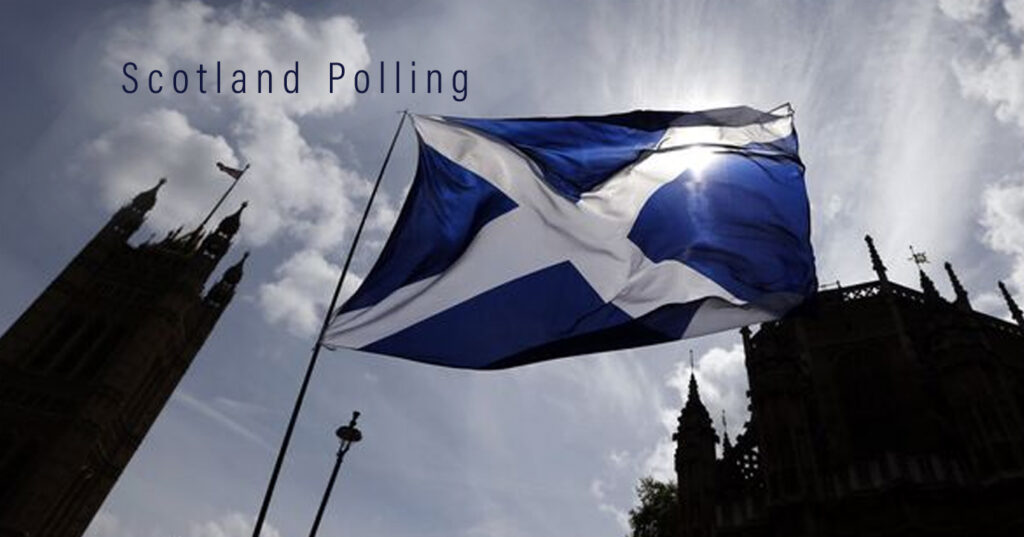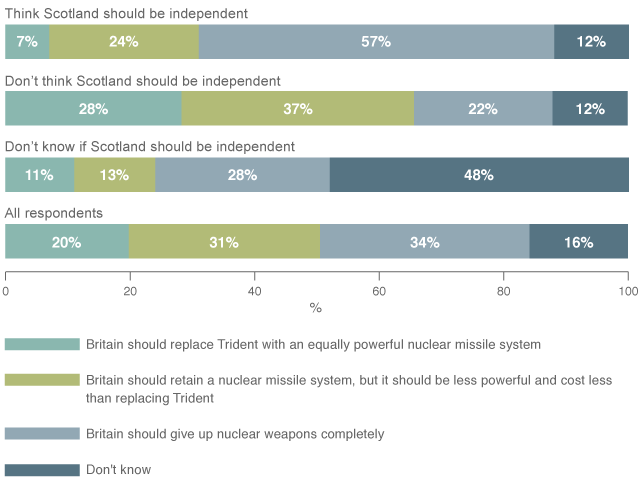
As I never tire of pointing out, it is always worth looking twice at any survey that seems to show that the public support the agenda of whoever commissioned it. Perhaps not at all surprisingly, a recent poll about nuclear weapons conducted in Scotland for CND is a case in point.
The poll, carried out in February, found 60 per cent of Scots saying they opposed “the UK Government buying a new nuclear weapons system to replace Trident”, with only 14 per cent in support. Quite a margin, which is at least partly explained by the preamble to the question, which was as follows: “The UK Government plans to replace the existing Trident nuclear weapons with a new system, at a cost of £65 billion”.
The main problem with this question is not the use of “UK Government”, which is at least factual even if it was intended to serve as a kind of dog whistle to independence-minded respondents. And since for most people one multi-billion pound number sounds much like another, nor is the stated cost (even though it is something in the region of three times the true replacement figure: £65 billion includes the estimated running costs for thirty years, though CND evidently thought that pointing this out would complicate things too much).
Most importantly, CND omitted to mention (perhaps they thought it would have made the question too long) that the government plans to replace Trident because it is coming to the end of its useful life. As it was, the question allowed those polled to assume the government wanted to spend billions on new nukes just for the hell of it. Looked at in that light, the results are hardly remarkable. Even so, the numbers served CND’s purpose, and were duly seized upon by parts of the Scottish press, and the SNP, which declared the issue a huge opportunity for the independence campaign.
As we know from their attempt to rig the referendum question, the SNP has form on this sort of thing. Trying to show that people think what you want them to think is not the same thing as trying to find out what they really do think. I am more interested in the latter – so last week I asked what people in Scotland really do think about Trident.
Told that the Trident system is coming to the end of its useful life and will soon have to be scrapped or replaced, only one third of Scots said the UK should give up nuclear weapons completely. More than half thought Trident should be replaced, either with an equally powerful system (20 per cent) or a cheaper but less powerful system (31 per cent). Asking a separate sample the same question but adding that the cost of replacing Trident would be £20 to £25 billion made no significant difference).
Scots were slightly more likely to think Britain’s nuclear weapons should continue to be based in Scotland (43 per cent) than that they should not (39 per cent), though opinion differed sharply between pro- and anti-independence respondents. In the event of Scotland becoming independent, only half of Scots thought Britain’s nuclear weapons should cease to be based at Faslane; 35 per cent would be happy to see the UK lease the naval base, with 15 per cent undecided. Again, those in favour of independence opposed the idea by more than two to one.
Overall, only a quarter of Scots thought Britain did not need nuclear weapons during the Cold War and does not need them today. More than a fifth said the need is lower than during the Cold War, while for nearly two fifths Britain needs nuclear weapons just as much as before (29 per cent) or even more (10 per cent): hardly a picture of overwhelming opposition.
It’s a pity CND had no room for such questions on its survey. As ever, I am happy to help.



